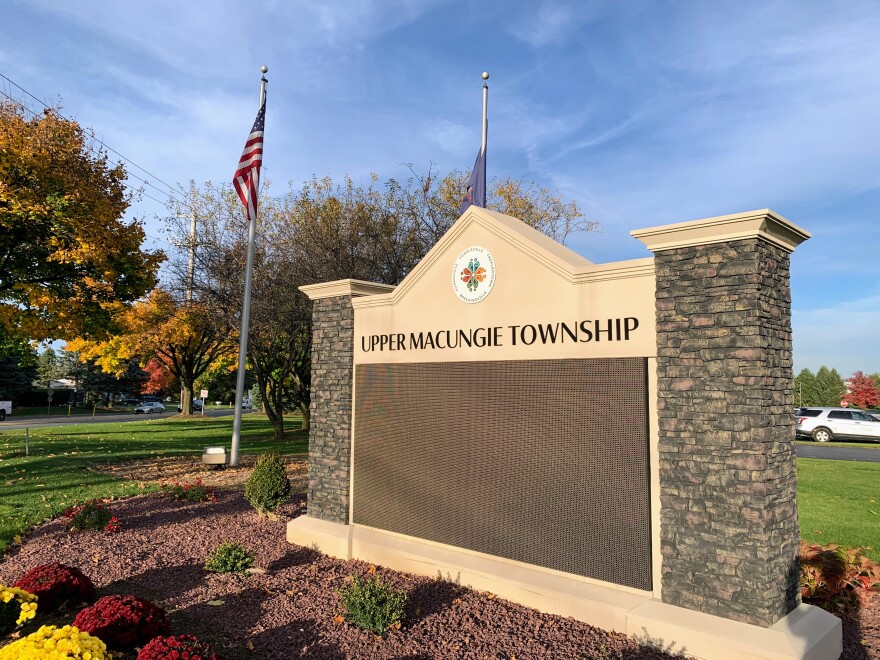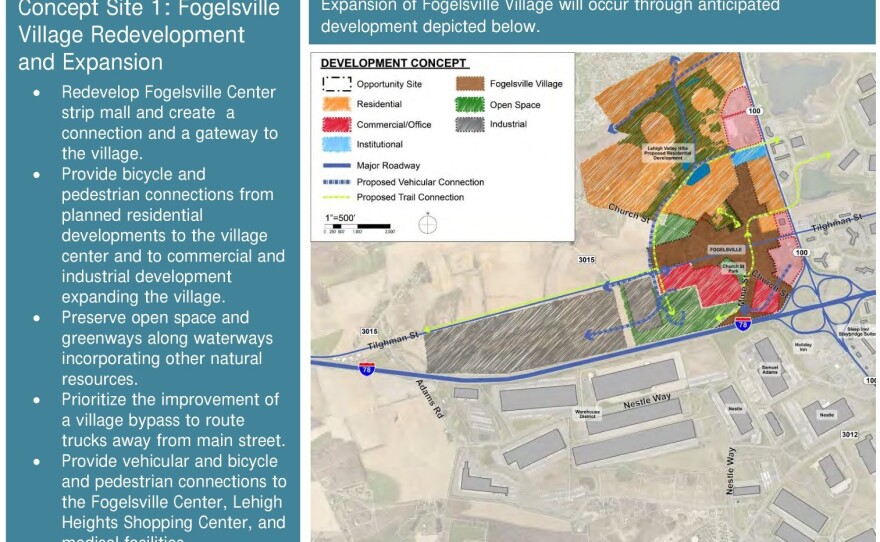UPPER MACUNGIE TWP., Pa. — As there has been outrage over three new warehouses in Upper Macungie, the township is asking for resident feedback on its land-use laws.
An upcoming workshop will let Upper Macungie residents give feedback on how the township should change its zoning ordinance and its subdivision and land development ordinance, or SALDO.
- Upper Macungie Township will hold a workshop for residents to give feedback on land-use law revisions
- It will be from 6 to 8 p.m. July 25 in the township municipal building
- The laws will affect warehouse development in the township, though only in limited ways
Those laws determine which types of developments are allowed in certain areas of the township, and what they can be like.
The workshop will be from 6 to 8 p.m. July 25 in the municipal building.
It will be run by consulting firm Michael Baker International, which is leading the township's review and revision of the land-use laws.
Assistant Township Manager Kalman Sostarecz emphasized that the revision is meant to affect the long term growth of the township and likely won't have a short term effect.
The revisions won't be able to get rid of any buildings, for example.
"What's here is here," Sostarecz said.
The zoning and SALDO review comes after the township adopted a new comprehensive plan in 2019, which outlined a vision for future developments in the township.
Sostarecz said zoning and SALDO revisions typically follow comprehensive plans. But since the township has changed since the plan was adopted, some revisions might be based on what residents say, even if the plan contradicts their comments.
Residents also can leave comments on an interactive map of the township about what areas they think should change or be preserved in the township.
What can the revisions do about warehouses?
The township recently has seen many new warehouse development projects, and citizens have raised concerns about their impact on the township.
In chapter five of the comprehensive plan, one of the goals listed is to “protect lands available for development from warehouse, distribution and logistic center development.”
“As much as people would like us to say ‘No, absolutely not, because we don't want any,’ that's just unfortunately not how the law works."Upper Macungie Township Planning and Zoning Administrative Specialist John Toner III
“While UMT is in the path of development, it is substantially developed and is at the break point of its ability to mitigate impacts of the existing warehouse cluster and any further expansion of this cluster,” the section reads.
But Township Planning and Zoning Administrative Specialist John Toner III said it is not legal to directly limit warehouse development through zoning and SALDO revisions.
The township can impose reasonable restrictions and conditions to warehouse developers, such as sidewalk installation and buffers.
But he said an attempt to stop allowing warehouse development in an area that now allows it could be seen as a taking, which is illegal.
“As much as people would like us to say, ‘No, absolutely not, because we don't want any,’ that's just unfortunately not how the law works,” Toner said.
“That way, if one day a smaller warehouse over on Daniels Drive, for example, decides to move out and that building is left vacant, what else could go there besides the warehouse?”Upper Macungie Township Planning and Zoning Administrative Specialist John Toner III
Toner said he has asked Michael Baker International to “get a little creative” with the uses allowed in the warehouse district as a way to mitigate those concerns.
“That way, if one day a smaller warehouse over on Daniels Drive, for example, decides to move out and that building is left vacant, what else could go there besides the warehouse?” Toner said.
“Could it be a small brewery? Could it be an art studio?”
Toner said it still would be up to the property owner whether they would want to pursue these alternate uses instead of warehouse development.
How will the revisions affect housing?
Chapter 4 of the comprehensive plan includes several “concept sites,” or areas that could be developed further in the future, with corresponding maps for how they could be developed.
Toner said he thinks Michael Baker International will make sure the updated ordinance will allow those concept sites to be developed.
In general, the comprehensive plan suggests clustered housing developments rather than traditional sprawled subdivisions could help the township preserve open space and agricultural land.
The plan also identifies mixed-use developments as a way to diversify the economic base of the township and said the township should work to provide housing for all income levels.
Toner said the township is looking into allowing more density in villages to revitalize them and encourage more affordable housing.





